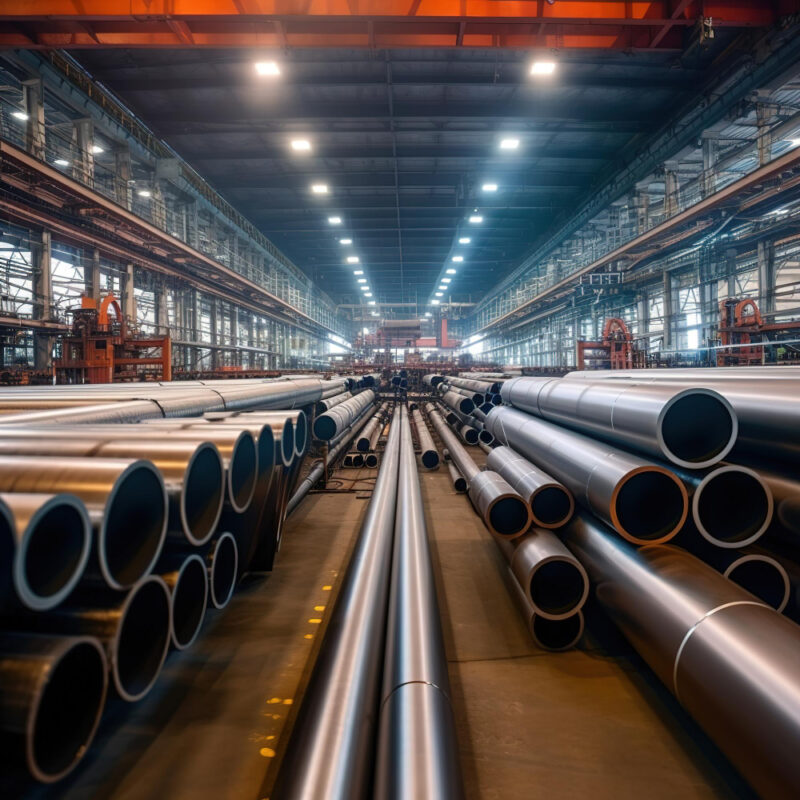 Steel stands as a cornerstone of modern civilization, shaping the landscape of urban development and industrial efficiency. Its remarkable adaptability and strength have propelled advancements in construction and manufacturing sectors, significantly impacting economic growth. However, the sustainability of steel is where its true value emerges, especially through its recyclability and innovations in production techniques. Such attributes make steel indispensable, particularly in areas like pipe supply, where efficiency and environmental consideration converge to support a greener future.
Steel stands as a cornerstone of modern civilization, shaping the landscape of urban development and industrial efficiency. Its remarkable adaptability and strength have propelled advancements in construction and manufacturing sectors, significantly impacting economic growth. However, the sustainability of steel is where its true value emerges, especially through its recyclability and innovations in production techniques. Such attributes make steel indispensable, particularly in areas like pipe supply, where efficiency and environmental consideration converge to support a greener future.
The Crucial Role of Steel in Sustainable Development
Steel is pivotal in modern construction and manufacturing, powering the growth of buildings, infrastructure, and vehicles. Despite concerns about its environmental impact, steel stands out for its sustainability, primarily due to its impressive recyclability.
Recycling and Reuse – A Path to Green Growth
As one of the most recycled materials, steel offers a robust solution to economic and environmental challenges. Its ability to maintain quality through multiple cycles of use makes it a preferred choice for sustainable building practices. This characteristic is particularly beneficial for steel pipe fabricators, who can repurpose steel without degradation of its properties.
Innovations in Steel Production
The steel industry is known for its significant energy consumption, which has historically contributed to its large carbon footprint. However, ongoing advancements spearheaded by industry experts are enhancing the efficiency of production processes. These improvements are crucial for reducing the industry’s overall emissions, proving that steel is not only necessary but indispensable for a greener future.
Steel’s Impact on Green Technology and Infrastructure
Experts highlight steel’s vital role in emerging green technologies and infrastructure developments that are essential for a sustainable economy. The material’s versatility and strength are critical in tackling global issues such as urbanization, poverty, and natural disaster mitigation. For pipe supply networks and other critical infrastructure, the continuous improvement in steel production processes means a more sustainable supply chain, benefiting both the environment and industry.
Why Pipe Supply is Crucial?
Steel pipes are crucial for infrastructure, from plumbing and heating to oil and gas distribution systems. Their durability and resistance to corrosion make them an ideal choice for long-term applications, thereby reducing the need for frequent replacements and minimizing environmental impact.
How Steel Pipe Fabricators Contribute
Steel pipe fabricators play a pivotal role by providing customized solutions for various industrial needs. Their expertise in crafting pipes to specific dimensions and standards ensures efficiency and reliability in supply chains. By optimizing the use of materials and incorporating recycling practices, fabricators of steel pipes help improve sustainability, making them a vital part of the green economy transition.
Steel’s Integral Role in Modern Society
Steel’s extensive use in sectors like construction and manufacturing underpins its significance in societal advancement. This material is central to creating essential structures such as bridges, buildings, and public transportation systems.
Sustainability Through Steel Recycling
Steel is distinguished by its recyclability, an essential feature that supports both economic growth and environmental sustainability. The capacity to recycle and reuse steel without diminishing its quality underscores its role in promoting environmentally friendly practices, particularly important for industries reliant on steel pipe fabricators.
Thinner and Greener – Evolution of Steel
Continual innovation has led to the production of thinner steel, requiring significantly less energy. Today’s steel is 30% thinner than that used in 1980, contributing to reduced greenhouse emissions, particularly in industries like pipe supply.
Efficiency and Waste Reduction
Efforts to minimize pollutants in steel production are yielding significant results. Approximately 600-700kg of byproducts are generated per ton of steel produced, with advancements enabling the recycling of 98.4% of these byproducts. Such progress underscores the industry’s commitment to sustainability and reducing its environmental footprint.
The Critical Role of Steel Pipes
Steel pipes are crucial for infrastructure, from plumbing and heating to oil and gas distribution systems. Their durability and resistance to corrosion make them an ideal choice for long-term applications. Hence, steel pipe supply reduces the need for frequent replacements and minimizes environmental impact.
How Steel Pipe Fabricators Contribute
Steel pipe fabricators play a pivotal role by providing customized solutions for various industrial needs. Their expertise in crafting pipes to specific dimensions and standards ensures efficiency and reliability in supply chains. By optimizing the use of materials and incorporating recycling practices, fabricators of steel pipes help enhance sustainability, making them a vital part of the green economy transition.
These ongoing improvements in steel production and fabrication not only benefit the pipe supply sector but also contribute significantly to global efforts toward sustainable development.
Connect with International Pipe for Your Steel Pipe Needs
At International Pipe, we specialize in offering high-quality steel pipes tailored for various industrial applications. Whether you’re upgrading infrastructure or expanding your manufacturing capabilities, our expertise in pipe supply in Oklahoma City ensures you get the best in durability and sustainability. Trust us to meet your specific requirements with precision and care. Contact International Pipe today and contribute to a greener, more efficient future.
